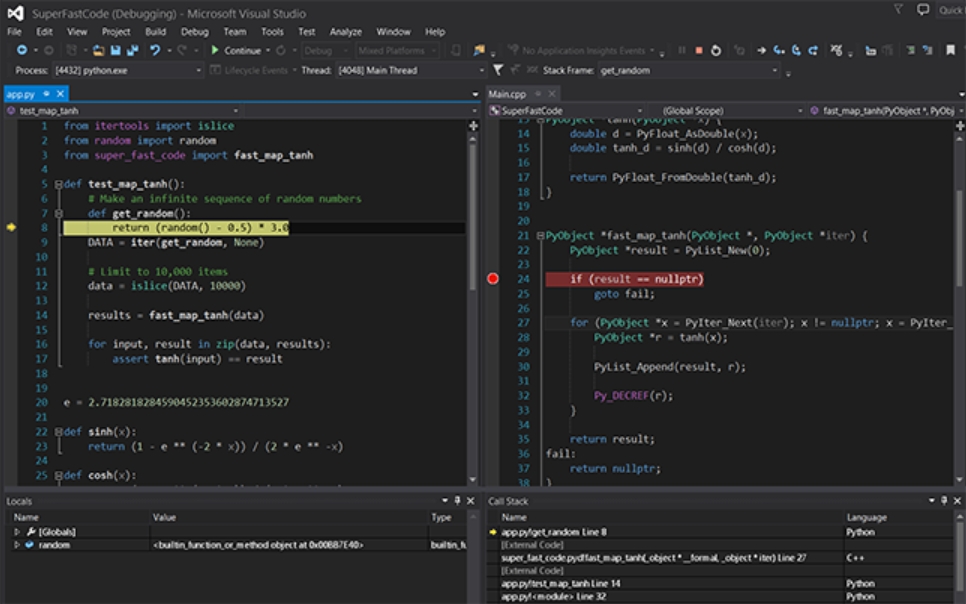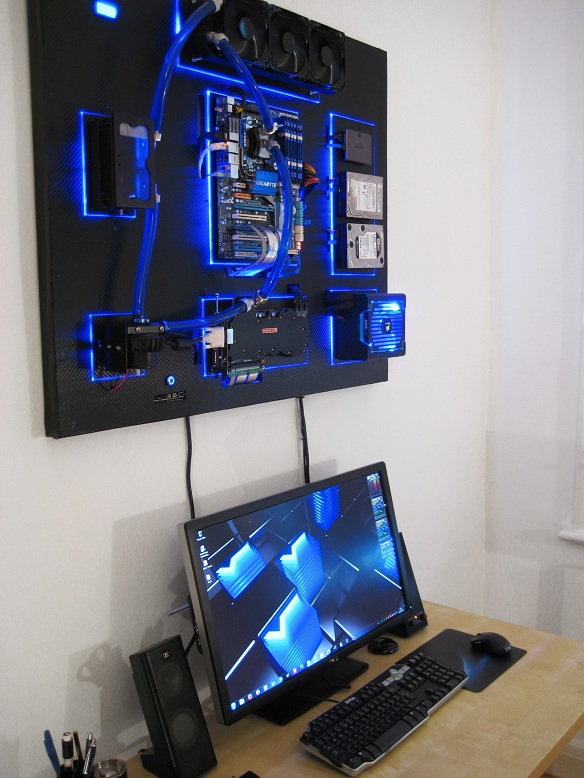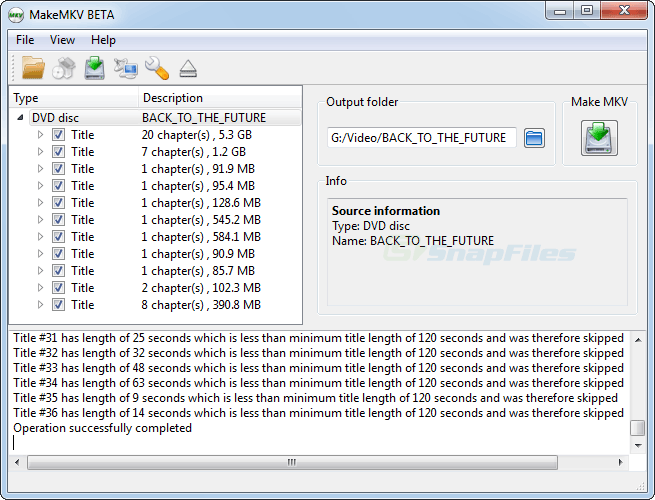Category Archives: Uncategorized
Alienware releases their Steam Machine
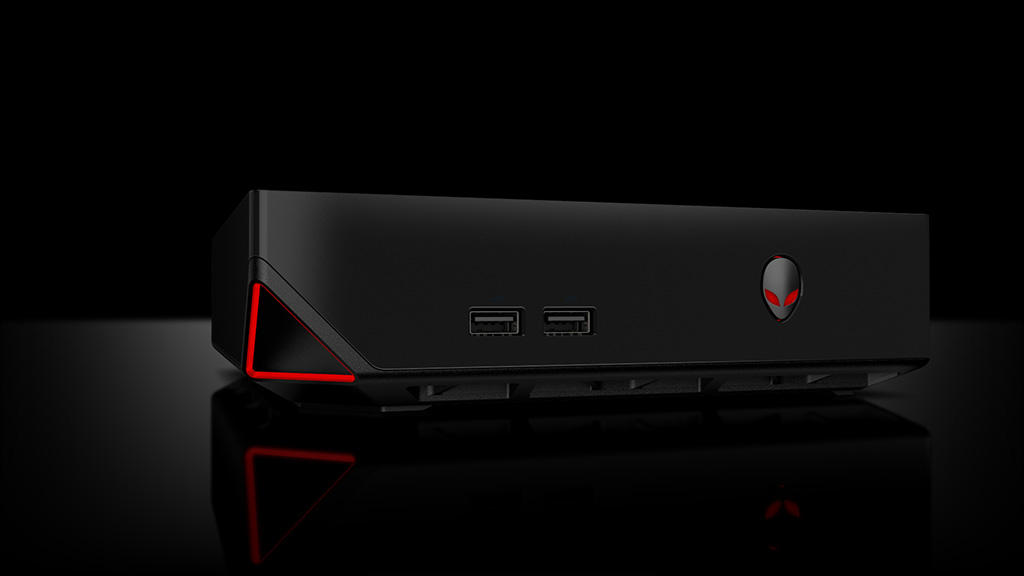
That headline requires more explanation than you might think. You see, this is a tale of three separate companies all coming together to make PC gaming more accessible. I don’t know how well they’ve succeeded, but let me give you some background, some opinion, and you can make your own decisions about whether or not this is a step in the right direction or not.
The first company we’ll mention is the well-known PC builder Dell, formed by Michael Dell who built PCs in his dorm room, sometimes going so far as to scrounge components from dumpsters. The company had huge success in the 90s, making its founder one of the richest men in the world, however they have since fallen somewhat from that high point although they still do very well. I personally only used Dells for many years, and for the price they’re good machines.
Cox giveth, and Cox taketh away

I recieved an email from Cox telling me they had just given me ’10x more cloud storage,’ for a total of 50GB. I didn’t know I had cloud storage from them at all, but apparently I did and now I have more! Of course, my OneDrive account gives me one terabyte, which is 1000GB, while Google Drive provides 15GB to start, so 50GB is a pretty good amount, a somewhat middle ground of storage space. Either way, I was grateful they were going to up my quota which I never knew I had in the first place.
Here’s the email they sent. Looks pretty good!
When it comes to repairing PCs, men think they know it all

We all know the old adage that men will never ask for directions, preferring instead to get lost rather than admit we have no idea what we’re doing. Same for calling a handyman; why would we need to pay someone to replace a refrigerator compressor when we can just do it ourselves? Even when it becomes painfully obvious we will never get it fixed, and parts have been strewn all over the kitchen, we still resist assistance. We can’t admit we don’t know, or admit defeat, or show weakness of any sort. It’s even been proven through research!
Now, that sense of I-can-fix-this-itis extends to the world of technology. Crucial, a manufacturer of computer memory, conducted a study in partnership with GMI research to investigate attitudes among men and women and their self-perceived ability to diagnose and fix a computer problem; Specifically, a computer that is experiencing slowing and occasionally freezing up.
HBO orders series based on Westworld

A lot of entertainment news that’s also relevant to class this week. While there are scant few details, it has been announced that HBO has ordered a TV series for next year based on the early-70’s Yul Brynner movie Westworld, whose plot revolved around a fantasy amusement park in which the actors are all androids. As you can guess, something goes wrong and the androids start running amok.
The movie was one of the very early looks at the potentialities of future technology, and of what we are beginning to face today in terms of robotics and artificial intelligence. In what was very forward-looking at the time, the androids actually started to act wacky because of something similar to a computer virus, an idea that was virtually unknown at the time. Remember that androids are different from robots, in that robots are mechanical devices whereas androids, supposedly, can look and act like humans, with skin, organs, and everything.
Amazon is hiring flight engineers for its drone service
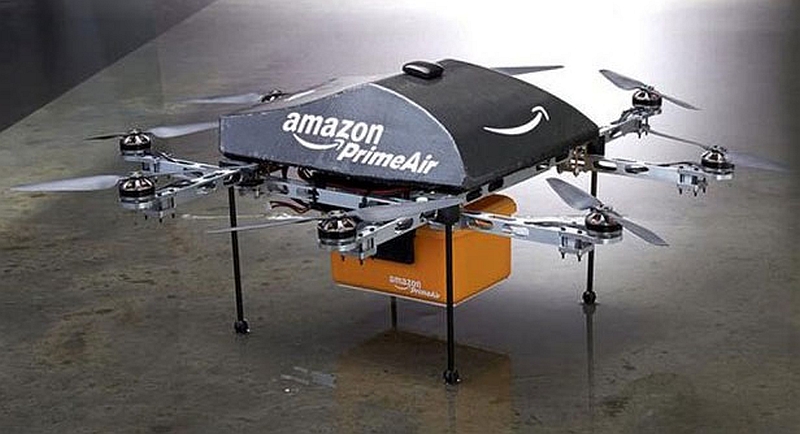
Amazon has been interested in making deliveries by drone for quite some time, but there are many questions that have to be answered. When the p[lan was first announced earlier this year, there were very valid question brought up about what would happen if you weren’t home, how would the drone know exactly where to land, what if someone shot at the drone or tried to steal it?
We’re not talking about drones like the military uses, either, the drones Amazon plans to use are more in-line with what hobbyists have been using lately to document great views all over the world so the questions become more pertinent.
Now, there may be the beginnings of an answer. Amazon recently posted a job announcement for a Flight Operations Engineer for their Prime Air service. The role involves developing the test plans, flight paths, certifications, and test flights for an eventual rollout of a full-fledged drone-delivery service, and of course aviation experience is required.
Google raises Turing Award prize to $1 million

So much comes together with this announcement. The Turing Award, created by the Association for Computing Machinery (of which I’m a member, full disclosure) is the equivalent of the Nobel Prize for computer science. Founded in 1966 and valued at $250,000, it has been awarded for advancements and developments in all areas of computer science, from programming achievements to hardware to OS design and development, although it tends to skew towards methodologies and programming, which is understandable; it is a computer science award after all.
Previously jointly-funded by Intel and Google at a value of $250,000, Google has taken over the award funding after Intel ceased involvement and raised the value to $1 million. Considering the impact technology and computer science have in our lives (and the Alan Turing-based Google Doodle they created for his 100th birthday; do those numbers look familiar?), I think it’s about time, and it puts the Turing Award in league with the Nobel Prize, although the financial award for that fluctuates.
Targeted Hacking Attempts Against High-Profile Hotel Guests

Over on Wired is a post about high-profile hotel guests, mainly but not always in Asia, being the targets of what are known as spear-phishing attacks. As opposed to regular phishing attacks which target as many people as possible, and which we’ll learn about later, spear-phishing attacks target a particular individual and attempt to steal data. The specific malware used for these attacks, and the group using it, is known appropriately as DarkHotel.
To summarize the article, the attackers would upload malicious software to the hotel server, then when the target logged on to the hotel WiFi they would be prompted to download an update to some Adobe software (the article didn’t state which, however never, ever download updates over public or even semi-private networks), but what they actually got was an infection.
Download Microsoft Visual Studio for Free
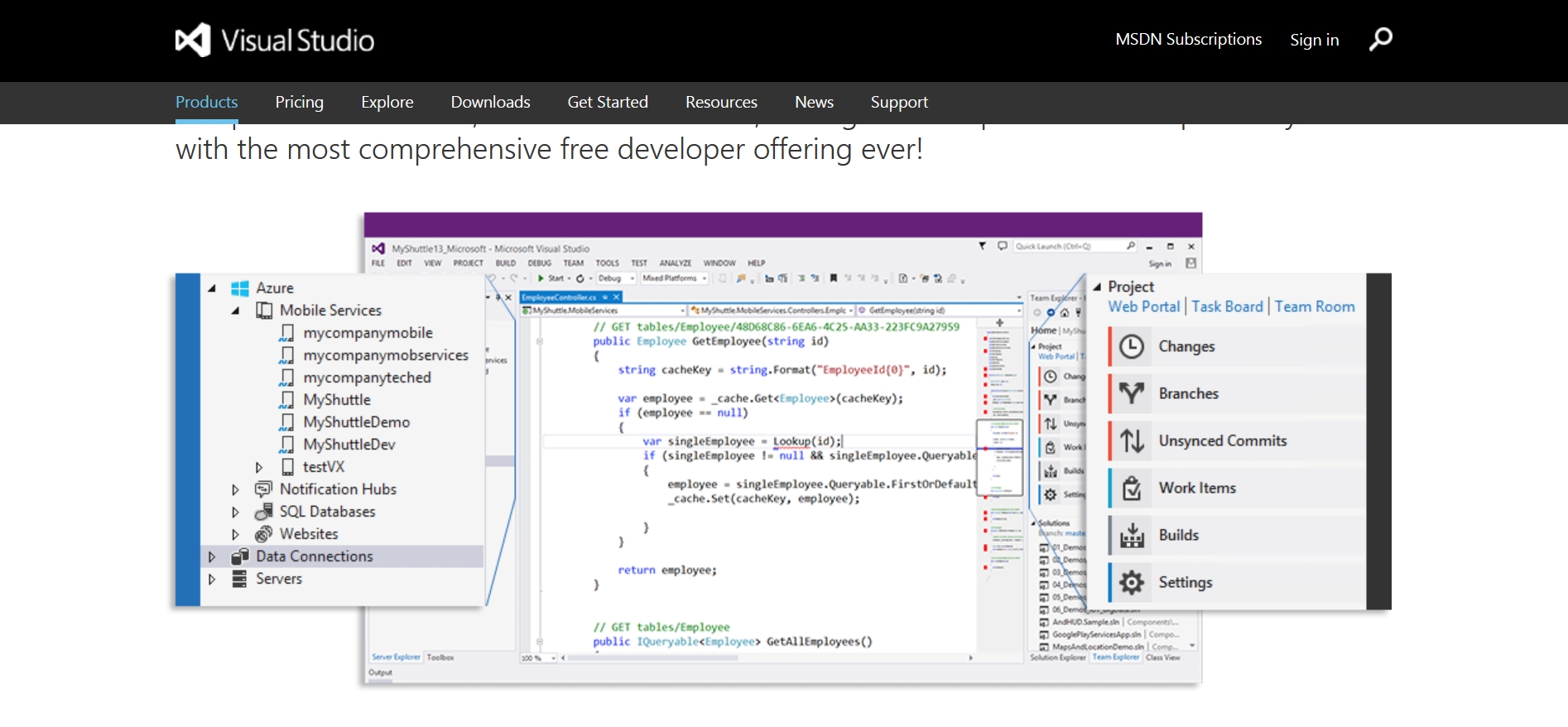
If you’ve ever wanted to experiment with programming, or are curious about how apps and applications are designed and developed, you can download a free copy of Microsoft Visual Studio. Known as an Integrated Development Environment (IDE), it supports the C# and Visual Basic programming languages, as well as app development on all mobile platforms; not just Windows but Android and iOS as well. It also will debug your program, and compile it into a running app when complete.
If you are interested, you can download it from this page – it’s free for students – and I always encourage people to get involved with this aspect of technology. We need more programmers and software developers, it’s an exceptionally valuable skill and having some experience will always be viewed favorably by employers, but it’s also just fun to do. Seriously.
If you’d like a good online reference, the Channel 9 series of videos from the Microsoft Developers Network are absolutely outstanding. As far as books are concerned I always recommend the Dummies series for programing. They’re very good, well paced, and don’t overwhelm you like textbooks always seem to do, and they even have good content online.
Don’t be afraid of giving programming a try. It may seem intimidating, but the concepts and methods start to become intuitive, and like mathematics or music, it’s just another language with syntax and structure, and unlike those others this one is based on actual language. It’s very rewarding when a program you’ve written runs, and after your first, simple “Hello World” program works you’ll see what I mean.
Now this is a great PC
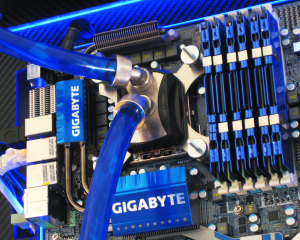
Custom-built PCs can be really remarkable, just look at the ones collected on this Pinterest page. Hobbyists will often take it upon themselves to unleash their own creativity in the same way car-customizers often do, and the results are no less remarkable, as this incredible computer INSIDE the desk clearly illustrates. However, easily one of the best-looking, and apparently well-running PCs I’ve ever seen is the one below. This is a breed of PC known as wall-mounted, for obvious reasons.
It appears that the trick is running the unpleasant, unsightly connections behind the main mounted board. The components are high-end, and I also wonder the impact is of having the main board exposed with no airflow control, although it probably doesn’t matter since the whole thing is liquid cooled (the three fans at the top of the wall-mount are dissipating the collected heat). The full specs are in this thread over on Overclock3D.net.
There’s also a video that’s just a bunch of pictures, but doesn’t provide any additional information. Still, an incredible setup.
More about creating your personal video library

On Friday I demonstrated the service I use to maintain a personal Netflix of sorts, PLEX. I got a couple of questions about it, and there were questions in class, so while this won’t be a post on the complete process of ripping then storing the video files, I will offer some clarifications and the tools I use to have it all up and running.
First, the tool I use to rip the videos is called MakeMKV. It rips some pretty big videos so storage will be an issue, and it rips them into the MKV format so your file will have a .MKV extension. It doesn’t preserve menus, only gives you a single file, and it can be somewhat overwhelming once the initial rip is complete. I also like MakeMKV because Blu-Ray is a proprietary format, so any time you buy a Blu-Ray or a Blu-Ray drive or anything Blu-Ray, Sony gets a cut. Therefore, a free Blu-Ray ripper is not something you’ll find laying around online. MakeMKV will eventually tell you you need to buy or register the product, but you can enter the beta key on this page and it will continue to work. I’ll talk a little about ripping, but there’s an excellent walkthrough here.
So about the ripping; once you put the disc in the drive, it does an initial scan and then you hit the big disc-drive button and it finds all the video content on the disc. I found this image online (it’s not mine) but this shows what the end result of a disc scan looks like, in this case Back to the Future.


